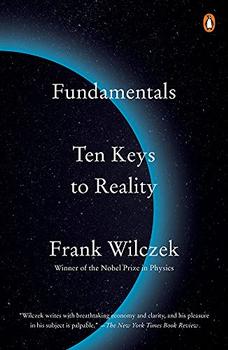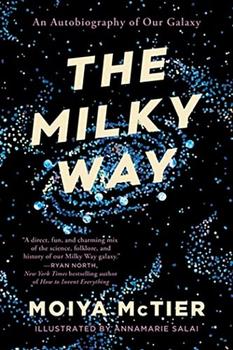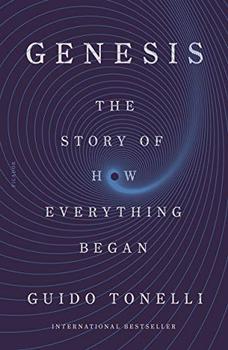Summary | Excerpt | Reviews | Beyond the book | Read-Alikes | Genres & Themes | Author Bio

Critics' Opinion:
Readers' Opinion:
First Published:
Jan 2021, 272 pages
Paperback:
Jan 2022, 272 pages
 Book Reviewed by:
Book Reviewed by:
Ian Muehlenhaus
Buy This Book
One of our great contemporary scientists reveals the ten profound insights that illuminate what everyone should know about the physical world.
In Fundamentals, Nobel laureate Frank Wilczek offers the reader a simple yet profound exploration of reality based on the deep revelations of modern science. With clarity and an infectious sense of joy, he guides us through the essential concepts that form our understanding of what the world is and how it works. Through these pages, we come to see our reality in a new way--bigger, fuller, and stranger than it looked before.
Synthesizing basic questions, facts, and dazzling speculations, Wilczek investigates the ideas that form our understanding of the universe: time, space, matter, energy, complexity, and complementarity. He excavates the history of fundamental science, exploring what we know and how we know it, while journeying to the horizons of the scientific world to give us a glimpse of what we may soon discover. Brilliant, lucid, and accessible, this celebration of human ingenuity and imagination will expand your world and your mind.
1
THERE'S PLENTY OF SPACE
PLENTY OUTSIDE AND PLENTY WITHIN
When we say that the something is big—be it the visible universe or a human brain—we have to ask: Compared with what? The natural point of reference is the scope of everyday human life. This is the context of our first world-models, which we construct as children. The scope of the physical world, as revealed by science, is something we discover when we allow ourselves to be born again.
By the standards of everyday life, the world "out there" is truly gigantic. That outer plenty is what we sense intuitively when, on a clear night, we look up at a starry sky. We feel, with no need for careful analysis, that the universe has distances vastly larger than our human bodies, and larger than any distance we are ever likely to travel. Scientific understanding not only supports but greatly expands that sense of vastness.
The world's scale can make people feel overwhelmed. The French mathematician, physicist, and religious ...
Wilczek adroitly intersperses the technicalities of subatomic particles with slice-of-life vignettes from his own experiences and uses metaphors that are memorable and convincing. His narrative voice is neither too smart nor too cute. Fundamentals informs while never feeling condescending, and it goes into great detail without losing clarity. It may be the most hopeful, humanitarian book on physics you'll ever read...continued
Full Review
(800 words)
This review is available to non-members for a limited time. For full access,
become a member today.
(Reviewed by Ian Muehlenhaus).
 Krista Tippett, host of On Being and author of Becoming Wise
This is an exuberant, gorgeously crafted, and intellectually thrilling book, written by one of our greatest living scientists yet hospitable to all. To be reminded that time and space, mystery and order, are so much stranger and more generous than we can comprehend—this is a gift to public life and moral imagination in a young century where what is visible and tangible feels chaotic and constricting. This book is also unexpectedly spiritually thrilling. Wilczek makes the remarkable move of picking up and evolving the classic scientists' faith that their investigations would reveal the mind of our maker, as well as Einstein's self-described 'cosmic spiritual sensibility.' What began as an exposition, as Wilzcek writes, 'grew into a contemplation.' The result is a profoundly enriched understanding, accessible to the religious and non-religious alike, of what it means to be human—and what we might be pointing at when we use the word God.
Krista Tippett, host of On Being and author of Becoming Wise
This is an exuberant, gorgeously crafted, and intellectually thrilling book, written by one of our greatest living scientists yet hospitable to all. To be reminded that time and space, mystery and order, are so much stranger and more generous than we can comprehend—this is a gift to public life and moral imagination in a young century where what is visible and tangible feels chaotic and constricting. This book is also unexpectedly spiritually thrilling. Wilczek makes the remarkable move of picking up and evolving the classic scientists' faith that their investigations would reveal the mind of our maker, as well as Einstein's self-described 'cosmic spiritual sensibility.' What began as an exposition, as Wilzcek writes, 'grew into a contemplation.' The result is a profoundly enriched understanding, accessible to the religious and non-religious alike, of what it means to be human—and what we might be pointing at when we use the word God. Sean Carroll, author of Something Deeply Hidden
This is a book about deep ideas, not passing fancies. It will teach you profound principles, not dry lists of facts. It's a rare treat indeed to get a glimpse into the mind of one of the world's leading physicists, presented in an engaging style that will be enjoyed by anyone at all.
Sean Carroll, author of Something Deeply Hidden
This is a book about deep ideas, not passing fancies. It will teach you profound principles, not dry lists of facts. It's a rare treat indeed to get a glimpse into the mind of one of the world's leading physicists, presented in an engaging style that will be enjoyed by anyone at all. Steven Strogatz, professor of mathematics, Cornell University, and author of Infinite Powers
Frank Wilczek is not only one of the world's greatest physicists; he's also one of its greatest explainers. Fundamentals is lucid, beautiful, and revelatory.
Steven Strogatz, professor of mathematics, Cornell University, and author of Infinite Powers
Frank Wilczek is not only one of the world's greatest physicists; he's also one of its greatest explainers. Fundamentals is lucid, beautiful, and revelatory.Humans are incapable of knowing for certain what is real. We use our five senses to collect data about the environment around us. Data is the key word here; we don't see, hear, touch, taste or smell reality. We use our senses to sample data about the environment.
This data is processed by our brains, which then interpret and give form to what we perceive as reality. Our reality is nothing more than our perception based on limited, sampling-error prone data.
The brain itself is comprised of around 100 billion individual cells, which in turn are built upon a handful of subatomic particles. These particles are reconfigured to create different types of atoms. Science has demonstrated that these atoms and subatomic particles don't ...
This "beyond the book" feature is available to non-members for a limited time. Join today for full access.

If you liked Fundamentals, try these:

by Moiya McTier
Published 2023
Astrophysicist and folklorist Dr. Moiya McTier channels the Milky Way in this approachable and utterly fascinating autobiography of the titular galaxy, detailing what humans have discovered about everything from its formation to its eventual death, and what more there is to learn about this galaxy we call home.

by Guido Tonelli
Published 2022
A breakout bestseller in Italy, now available for American readers for the first time, Genesis: The Story of How Everything Began is a short, humanistic tour of the origins of the universe, earth, and life - drawing on the latest discoveries in physics to explain the seven most significant moments in the creation of the cosmos.





The Flower Sisters
by Michelle Collins Anderson
From the new Fannie Flagg of the Ozarks, a richly-woven story of family, forgiveness, and reinvention.

The House on Biscayne Bay
by Chanel Cleeton
As death stalks a gothic mansion in Miami, the lives of two women intertwine as the past and present collide.

The Funeral Cryer by Wenyan Lu
Debut novelist Wenyan Lu brings us this witty yet profound story about one woman's midlife reawakening in contemporary rural China.
Your guide toexceptional books
BookBrowse seeks out and recommends the best in contemporary fiction and nonfiction—books that not only engage and entertain but also deepen our understanding of ourselves and the world around us.